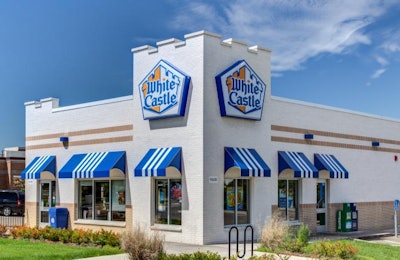
As the plant-based protein industry continues to grow, it seemed like it was only a matter of time before meatless protein products hit the masses through the quick service restaurant (QSR) channel.
Iconic burger chain White Castle has decided to test the marketplace with the introduction of a slider made from Impossible Foods’ plant-based burger product, and that may just be the start of a trend that other QSRs could follow.
White Castle testing select markets
Earlier in April, White Castle began to test its meatless slider at select markets in New York, New Jersey and in the Chicago area. This will involve about 140 restaurants. The chain, according to a report on the Quartz website, will expand the operation to all 380 of its locations if the meatless burger proves to be popular.
Affordability of meatless burger
David Lee, the chief operating officer of Impossible Foods, told Fast Company the company’s intent has long been to make its products available everywhere, and at an affordable price. He stated that the company is now producing at a level of scale that it can provide the Impossible Burger at a price it deems reasonable.
White Castle is reportedly selling the Impossible Slider for $1.99.
Cause for concern?
Should people in the meat and poultry industry be concerned about what White Castle is doing?
A lot of that will depend on whether the launch of the product in select markets will be successful enough to make them available chain-wide. If it does do well, it would seem other companies will try to copy that success formula.
It is also worth noting that plant-based proteins have the support of animal rights groups, which have a history of trying to persuade restaurant chains to adopt to their agendas. Just look at how many companies have committed to selling only cage-free eggs and chicken from broilers raised according to Global Animal Partnership standards.
There is a good chance that the most die-hard vegans who have chosen that type of diet due to animal welfare reasons, will not flock to White Castle because they still sell beef, which is against their beliefs. This could hinder the success of the chain’s meatless burger test.
And those who try the Impossible Slider may still eat meat and poultry. Like Maple Leaf Foods CEO Michael H. McCain said when explaining the meat and poultry company’s venture into plant based proteins, "There’s a significant consumer trend to not eat less meat, but to increase protein consumption in a more balanced way. … It’s really about consumers’ choice, not one or the other, it’s typically both and finding the balance for both.”
And Sally Grimes, president of Tyson Foods' Prepared Foods division, not too long ago said, “Over half of us are actively trying to add more protein into our diets, and protein has risen to the top of all desiered health attributes in food.”
If you keep what Grimes and McCain said in mind and are an optimist, you aren’t poised to miss too much sleep about White Castle’s experiment.
The situation will be well worth watching, and should also serve as a reminder to those in the poultry industry to do all they can to promote its healthy, safe, flavorful and versatile products.


















